Earth's Systems
-
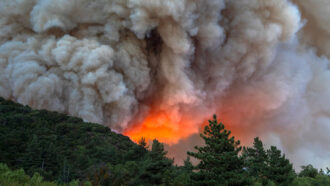 Environment
EnvironmentWildfire smoke seeds the air with potentially dangerous microbes
Studies now show that most wildfires don’t kill microbes. That’s fueling worries about what risks these smoke hitchhikers might pose to people.
By Megan Sever -
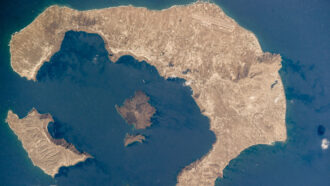 Earth
EarthGreece’s Santorini volcano erupts more when the sea level drops
Data showing this association go back at least 360,000 years.
-
 Environment
EnvironmentExplainer: Urban heat islands and how to cool them
Cities transform landscapes covered in plants to ones covered in heat-absorbing asphalt and concrete. But ways exist to cool these urban heat islands.
-
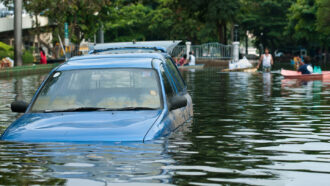 Environment
EnvironmentWarming cities may see more rain — and frequent flooding
Scientists are seeking to understand why and how to mop up excess precipitation.
-
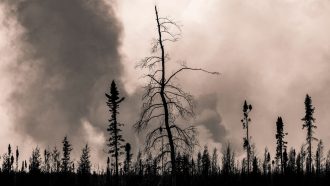 Environment
Environment‘Zombie’ wildfires can reemerge after wintering underground
Climate change may make these not-quite-dead blazes more common. Scientists are learning to predict where a zombie might emerge.
-
 Fossils
FossilsSudden shark die-off 19 million years ago eliminated most species
New fossil evidence shows 90 percent of sharks died in the mysterious event.
-
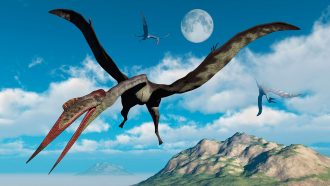 Animals
AnimalsLet’s learn about dinosaurs’ fearsome neighbors
Dinosaurs may get much of our attention, but there were plenty of other interesting critters during the Age of Reptiles, including our mammal ancestors.
-
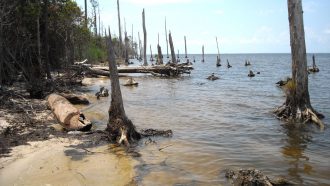 Earth
Earth‘Tree farts’ make up about a fifth of greenhouse gases from ghost forests
Heat-trapping gases from dead trees play an important role in the environmental impact of “ghost” forests.
-
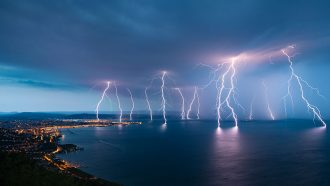 Earth
EarthLet’s learn about lightning
Around 100 times a second, every hour of every day, lightning strikes somewhere on Earth. It’s beautiful — and deadly.
-
 Agriculture
AgricultureNew technologies might help keep drought-prone farms green
After learning how much damage drought can do to crops, two teens designed ways to detect a thirsty plant and make sure it gets enough water.
-
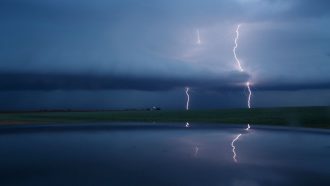 Earth
EarthHere’s how lightning may help clean the air
Airplane observations show that storm clouds can generate huge quantities of air-cleansing chemicals known as oxidants.
-
 Space
SpaceRaindrops on alien worlds will obey Earth-like rules
Their size will be similar no matter what they’re made of or on which planet they fall, a new analysis finds.